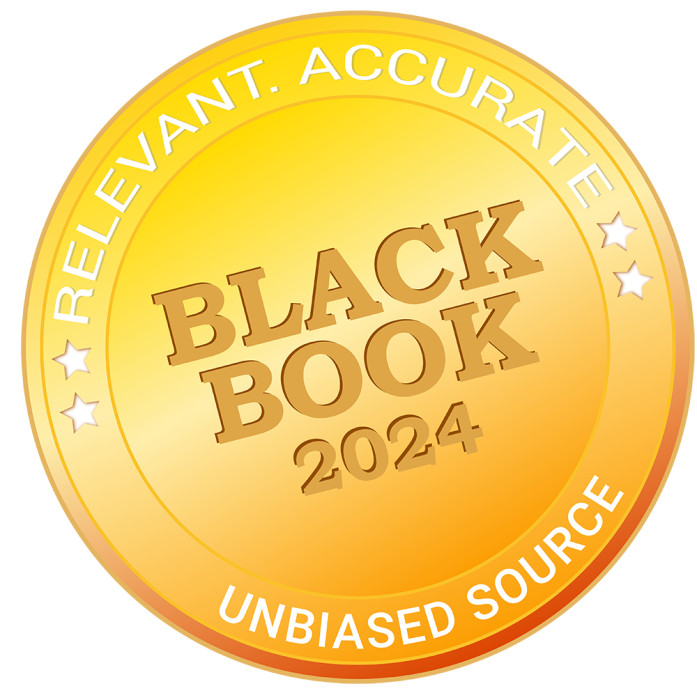Providers Increasingly Adopt Value-Based Care, Leveraging Top-Performing Consulting Expertise: Black Book Research Client Survey

Significant efforts lie ahead, as the Black Book survey reveals that only 37% of medical practice respondents are receiving value-based care (VBC) payments from upside-risk arrangements and shared savings, while 12% receive payments from full risk. The remaining halfcontinue to rely on Fee-For-Service payments.
TAMPA, FL / ACCESSWIRE / February 19, 2024 / According to a 2024 survey by Black Book Research, two-thirds of healthcare providers venturing into value based care (VBC) are turning to advisory firms to navigate the complexities of addressing their challenges in care delivery, implementing effective data analytics strategies, and fostering collaboration among various stakeholders in the healthcare sector.

Black Book surveyed 902 health systems with affiliated VBC providers, and 2,375 physician and medical providers to determine the emerging patterns and preferred advisors in value-based care consulting including a heightened focus on data analytics for informed decision-making, the integration of technology for efficient healthcare delivery, emphasis on patient engagement strategies, and a shift towards outcome-driven reimbursement models.
Overall, value-based care consulting aims to support healthcare organizations in delivering higher quality care, improving patient outcomes, and achieving cost savings through a more efficient and coordinated approach to healthcare delivery.
The eight key aspects rated by current and past clients of value-based care consulting engagements between 2021 and 2024 in the Black Book Research survey are:
- Strategy Development: Consultants help healthcare organizations develop and implement a comprehensive strategy for transitioning to value-based care. This includes assessing the current state of the organization, defining goals, and outlining a roadmap for the transition.
- Data Analytics: Consultants assist in implementing robust data analytics solutions to support evidence-based decision-making.
- Performance Improvement: Value-based care consulting involves identifying opportunities for performance improvement. This may include optimizing care delivery processes, enhancing care coordination, and implementing evidence-based practices to achieve better patient outcomes.
- Population Health Management: Consultants assist organizations in developing and implementing population health management programs, which involve identifying and addressing the health needs of specific patient groups. In the survey responses, 62% of providers highlighted that care coordination was identified as one of the key elements lacking in their preparedness for value-based care
- Provider and Payer Collaboration: Successful value-based care requires collaboration between healthcare providers and payers. Consultants help facilitate partnerships and agreements between these entities, ensuring alignment in goals and incentives.
- Technology Integration: Implementing the right technology is essential for value-based care success. Consultants assist in selecting and integrating health information technology solutions that support care coordination, data sharing, and population health management.
- Regulatory Compliance: Navigating the complex regulatory landscape is a challenge in healthcare. Value-based care consultants stay abreast of regulatory changes and help organizations ensure compliance with relevant laws and standards.
- Financial Modeling: Understanding the financial implications of transitioning to value-based care is critical. Consultants assist in developing financial models that project the potential costs and benefits of the transition, helping organizations make informed decisions.
“For CMS to realize its aim of having every traditional Medicare beneficiary engaged in a value-based care (VBC) relationship by 2030, the transition of payment models to VBC needs to accelerate at a faster pace,” adds Brown. “And according to 81% of respondents, the primary catalyst to expedite the pace of VBC transactions is the assurance of predictable compensation.”
One thousand Four Hunder and Fifty-five VBC consulting engagement clients provided top scores in the following categories of providers:
VALUE-BASED CARE TRANSFORMATION & STRATEGY CONSULTANTS: PHYSICIAN PRACTICES & AMBULATORY ORGANIZATIONS
CAREALLIES, A DIVISION OF THE CIGNA GROUP
VALUE-BASED CARE TRANSFORMATION & STRATEGY CONSULTANTS: HOSPITALS & HEALTH SYSTEMS
SG2, A VIZIENT COMPANY
The entire list of the 2024 top 20 performing consultant firms in both physician organization and hospital system categories can be viewed at https://blackbookmarketresearch.com/it-consultants-and-advisors
About Black Book
Black Book Market Research LLC, its founder, management, and staff do not own or hold any financial interest in any of the consultants and advisory firms covered and encompassed in the surveys it conducts. Black Book reports the results of the collected satisfaction and client experience rankings in publication and to media before firm notification of rating results and does not solicit survey participation fees, review fees, inclusion, or briefing charges, or involve consultant firm collaboration with Black Book before the announcement of the polling outcomes.
For Black Book vendor satisfaction rating methodology, auditing, resources, comprehensive research, and ranking data, see www.blackbookmarketresearch.com and Media may request press copies via research@blackbookmarketresearch.com.
Contact Information
Press Office
research@blackbookmarketresearch.com
8008637590
SOURCE: Black Book Research
View the original press release on newswire.com.
